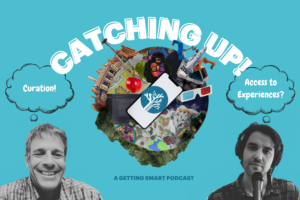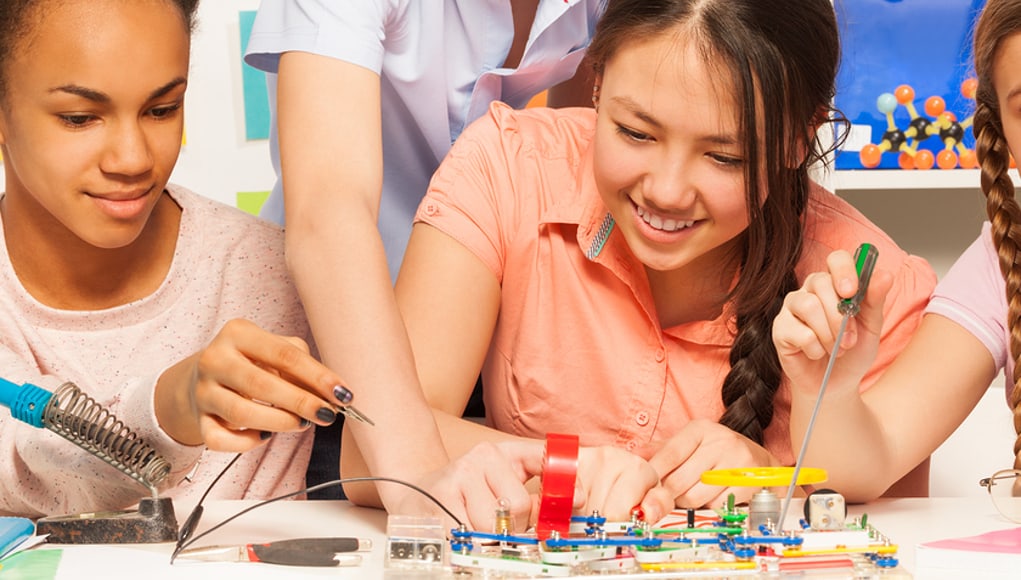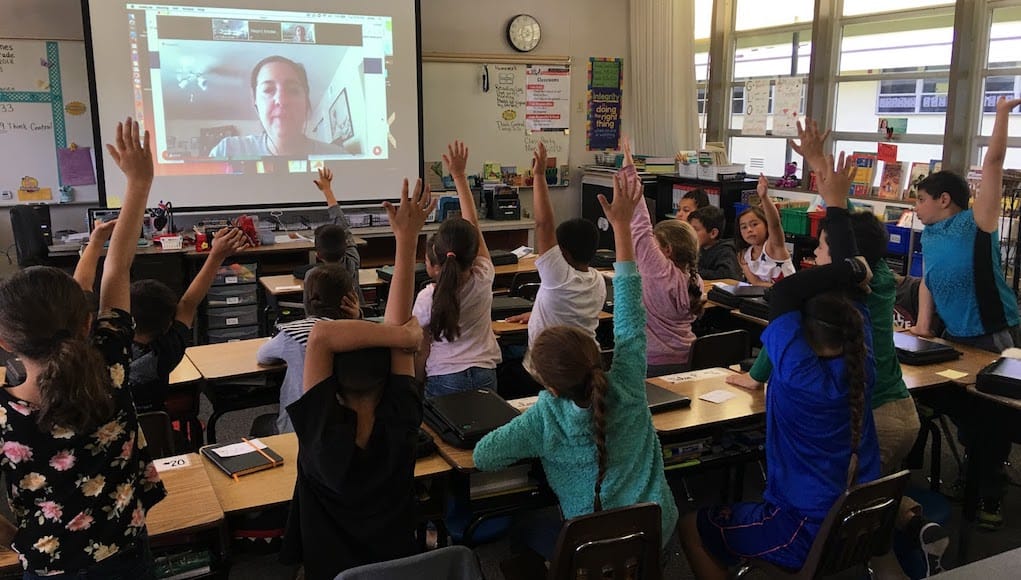Project-Based Learning
(PBL) is an instructional approach where traditional, direct classroom instruction and tests are replaced by authentic, often interdisciplinary projects, usually designed by the student with guidance from instructors/coaches, addressing real-world problems as the assessment instead of a test. It also is closely related to deeper learning, challenge-based learning, interest-based learning and more.
Teaching Students How to Bring Their Dreams to Life
By: Piet Grymonprez. Young children have a strong capacity for 'having a go'. How can we foster the capacity to imagine, dream and try in students? MyMachine is working to do just that. They are helping bring student dreams to life.
The Future of Learner Experience (LX)
Our team recently got together with innovative educators and brilliant learners to discuss the future of learner experiences. Learning surrounds us. As we walked and talked, we uncovered that the future of LX is now.
Project Based Learning is a Spectrum
The difference between “doing projects” (what the BIE refers to as “dessert projects”) and implementing project based learning is not binary - it’s a spectrum. Here, we explore the grey are in between.
How Can Children Aspire to Careers They Don’t Know Exist?
By: Ed Hidalgo. By connecting exciting career options to learning, class work becomes more valuable, reinforcing the idea that school is a path to something that can be fun and rewarding. This district doesn't think career exploration is a "big kid only" topic.
Powerful Learning Experiences: Why All Students Deserve Access
It is only by equalizing access to opportunities for powerful learning (by providing authentic, student-centered experiences) for all students that we will close the experience gap.
9 Ways To Make Student Work Authentic
Making learning more “real” has long been a goal of those who have promoted everything from project-based learning to career technical education. Both learners and learning facilitators want learning where the ‘why’ is an integral part of the process. It’s this desire to be “real” that has now found its way into our vernacular as “authenticity”.
What Counts as Student Agency?
Students who are motivated to learn are more likely to focus on understanding, are more likely to learn deeply, are more likely to go above and beyond in an assignment, and are more likely to investigate when they have a question.
Empowering Students and Teachers for the 21st Century
By: Alan November. How do you motivate students to do their very best? One of the best ways I have found is through giving them voice and choice in what they learn, and how they learn it.
A Beginning Rather Than an End: Reframing Summer as the Start of Next School Year
By reframing the potential of summer, from “ten weeks of academic wilderness between school years” to “the start of the next learning opportunity,” summer has the possibility to serve as a smooth, engaging, and uninterrupted continuation from one school year to the next.
Student Public Radio: Community, Communication, and Other “Cs”
Beyond the obvious 21st century skills students develop in taking ownership of their own radio broadcast, they also forge connections to curriculum and content. Here, we explore the reasons (and some ways) to enable students to create and operate a radio station.












